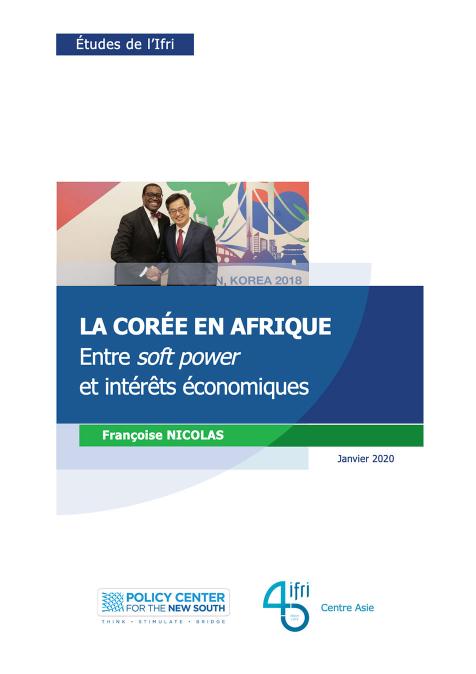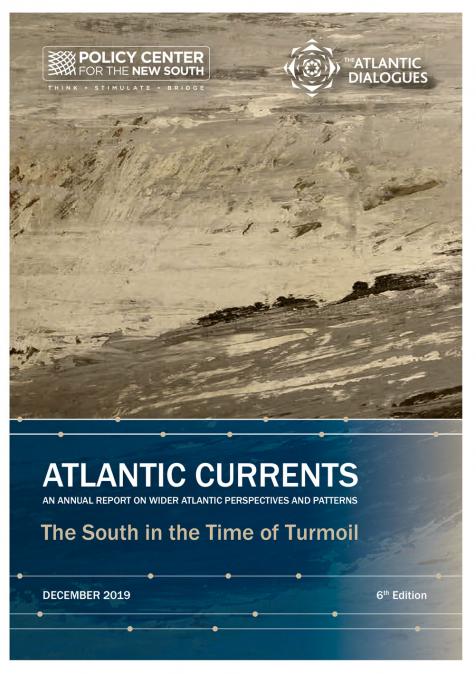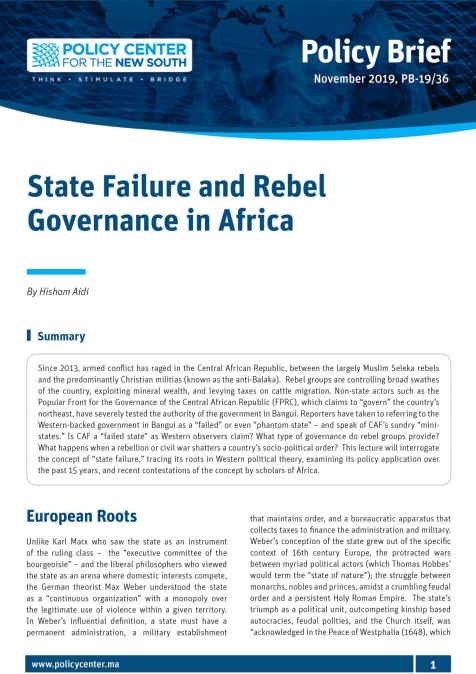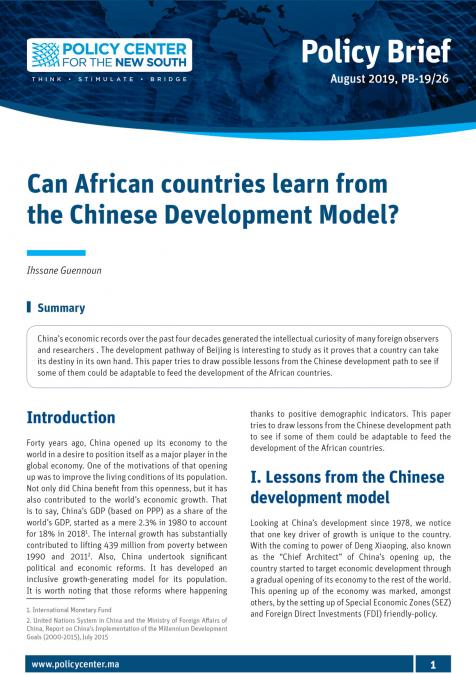Publications /
Opinion
As with the rest of the World, the impact of COVID-19 in Kenya has stretched beyond the sphere of healthcare and the spread of the actual virus, as economic development outcomes are expected to be seriously affected by the disruption caused both globally and locally.
In fact, one of the working hypotheses of the impact of COVID-19 on African nations is that the substantive impact of the virus on livelihoods will occur less from health-related issues than the economic shock, disruption and Government response to the crisis. But before diving into the analysis, I think it is only appropriate to place an initial disclaimer that the inherent variability of the situation means that it would be folly to put any definitive analysis forward and 'predict' an eventual outcome. I have taken an industry-led, narrative methodology seeking insights primarily from private sector players and operators. This is geared at an effort to develop a preliminary assessment of the situation but in any event, any analysis of the impact of COVID-19 must be a 'living document' and updated with changing circumstances.
GDP growth in Kenya is expected to contract significantly; the Central Bank of Kenya revised its estimate for 2020 from the initial 6.2% to 3.4%. I believe that this is still an optimistic assumption and we are looking at sub-3% growth this year with McKinsey & Company having already placed growth expectations for Kenya at 1.9% in a recent report analysing the impact of the virus on Africa.
Within this context it is important to remember that Kenya is also dealing with a locust invasion this year whose impact has not been fully confirmed but is expected to affect agricultural output. This will be determined closer to the next harvest period. For the current period, the tussle between maize growers and the Government will also mean that Kenya is likely to import more bags of maize to maintain supply lines of crucial commodities such as maize flour and manage food security. So, the estimate of sub-3% growth I think will be fairly accurate. Agricultural output domestically is a key variable of this low growth but this is seemingly affected more by the locust invasion than by COVID (save for the supply of fertilizers and other inputs).
What is being directly and immediately being affected by COVID in the Agricultural sector is horticulture and floriculture exports. With limited flights and weak demand in major markets in Europe and Asia, subsets of the two sectors (namely tea, coffee and cut flowers) are struggling. The floriculture industry is being particularly hard hit with large farms laying off workers and struggling to service their loans despite a general off-season for farms running at 30-40% of capacity. Coffee and tea exports are on the decline as well due to weak demand and low commodity prices in target markets. Vegetable exports on the other hand are witnessing strong demand, but decreased air freight services are constraining the revenues earned from this sector. Disrupted local harvests in major European, Middle Eastern and Asian markets is driving up demand for fruit and vegetables but the challenge is limited outbound air freights. The horticulture and floriculture exports play a key role in earning foreign exchange, and along with the full decline of tourism and the hospitality sector, Kenya's reserves of foreign currency are expected to be depleted at a faster rate putting some pressure on the Kenyan Shilling.
My expectation of the Shilling is that it will be managed within the 10% range to the dollar (up to $1 - Kshs 110) - it will fluctuate between Kshs 104 – Kshs 108. This is due to decreased horticulture/floriculture exports, no tourism or hospitality receipts and suspected decreases in diaspora remittances later on in the year as Kenyans abroad try to mitigate their own situations in declining economies across the world. As it stands, remittances are still growing while Kenyans abroad seek to help cushion their relatives back home to any crisis – this inverse relationship of declining economic outcomes resulting to higher remittances is one that needs to be confirmed but is a silver lining. The only substantial respite Kenya may have in the devaluation of the Shilling is the low oil prices which are not expected to rise significantly this year.
Essential goods manufacturers recorded rises in revenues over the month of March. The largest manufacturer of pharmaceuticals in the country had its highest ever revenue in March as the Government, households and businesses in the value chain are buying both in caution and reaction. Food and beverage manufacturers will also continue to have strong revenues until household consumption begins to fade with stretched out incomes. The real impact of COVID-19 on manufacturing economic performance will be seen at the start of the next quarter when household and business spending is likely to drop by about 50%. The reduced incomes and money in circulation will definitely stretch demand and will reverberate to the rest of the manufacturing sector. The banking and financial sector will also see a significant drop in revenues with SMEs being particularly vulnerable to the crisis and unable to service loans or conduct meaningful transactions. It is likely that there will be a significant increase in non-performing loans and moratoria issued (perhaps even on Government lending). The stock market has been on a steady decline with external portfolio investors having already pulled out money from the exchange following the spread of the virus to Kenya.
All the above analysis is on the formal sector, but the elephant in the room and indeed the most affected by the crisis will be the informal sector which makes up close to 80% of Kenya's employment. These individuals live on a day-to-day basis and are primarily in low-end services. They will be disrupted by both the Government response to manage the crisis and the shocks in the supply chain further up the ladder. These individuals also make up a significant portion of demand of low-end FMCG goods and it is likely that with reduced incomes this demand will crash and the meagre incomes earned will be used to buy basic goods - food and medicine. The biggest challenge to the country will come from the impact the virus and subsequent economic crisis has on the poorest of society who are this informal sector. Should the response not be cognizant of the realities of the informal sector, civil unrest and violence could break out leading to further disruption of economic activities and downgrading the growth projections further.
Beyond the formal and informal sector dichotomy, there is also the rural urban divergence of impact. The bulk of disruption is happening in urban centres (Nairobi, Mombasa, Eldoret and Nakuru). In the rural areas the impact is less direct and therefore there will be a modicum of normalcy in most counties. The impact will be indirect and occurring from the disruption of the supply chain and fluctuating operations in Mombasa and Nairobi. This gives some cushioning and resilience to the situation. We are yet to see how grave the human impact of the virus will be on Kenya (depending on this there could be further declines in economic output) but the economic impact is certain to be very significant, there will be hundreds of businesses (mainly SMEs) that will close down and never revive because of this crisis and it will take a while and much more Government fiscal intervention to bring the economy back to life. While the Government is focusing (and perhaps rightly so) on avoiding a humanitarian crisis, there needs to be a concerted effort to begin thinking about how we will introduce the right economic policies to revive the economy once this is all over. The crisis will end, but we must be ready with the right interventions to kick-start the economy.
The author is alumnus of the 2019 Atlantic Dialogues Emerging Leaders program.







